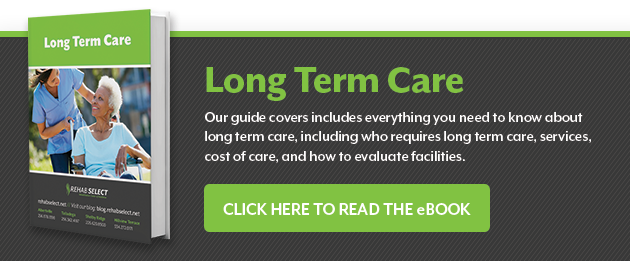
Neuromuscular therapy (NMT) is an integral form of treatment for men and women with neuromuscular disorders such as multiple sclerosis (MS) or Parkinson’s disease. The physical, occupational, and other therapies that are part of NMT help you stay active, manage your symptoms, and reduce relapse.
If you or a loved one has a neuromuscular disorder, NMT will likely be recommended as part of your comprehensive treatment program. You may be interested to know more about what NMT therapy is and how it helps. Let’s explore how neuromuscular therapy works.
What is neuromuscular therapy?
The neuromuscular system refers to the parts of the nervous system (primarily muscles and nerves) that control movement in the body. Damage to this system can occur from an injury or health condition, leading to physical and cognitive impairments.
Some common neuromuscular disorders that benefit from NMT include:
- Parkinson’s disease
- Amyotrophic lateral sclerosis (ALS)
- Multiple sclerosis (MS)
- Muscular dystrophy
Neuromuscular disorders can lead to a number of symptoms including spasms, loss of muscle control, and problems with muscle response, balance, and coordination. Neuromuscular therapy targets these nerve- and muscle-related concerns to help promote optimal functioning.
NMT often includes a mixture of the following therapies:
- Mobility and range-of-motion training
- Strength training
- Gait and balance training
- Communication and life skill retraining
- Complete swallow study
- Counseling
Your care team personalizes a treatment plan with the therapies tailored for you. Let’s take a look at the most common neuromuscular therapy benefits.
Neuromuscular Therapy Benefits
Benefit 1: Improved Strength
Muscle weakness is one common symptom of neuromuscular disorders, particularly MS and Parkinson’s disease. Fatigue and weakness from the health condition can lead to a vicious cycle of inactivity and muscle atrophy. If you feel weak, you may feel like resting and avoiding activity, which causes muscles to weaken more.
On the other hand, physical activity is usually a safe, effective way to break the vicious cycle. While some of the damage from these neuromuscular conditions is permanent, it’s still possible to build or retrain muscles for greater strength. Exercise helps maintain or build your physical fitness, and it might also reduce inflammation and muscle breakdown.
A physical therapist who specializes in NMT knows which moves are most effective to safely train your body. Your therapist may include focused resistant training, balance work, gait training, and flexibility exercises to help your body move with fewer limitations.
You may feel less stiffness and pain and be able to perform daily activities easier as a result of physical therapy. Improved strength can be a life-enhancing benefit of neuromuscular therapy.
Benefit 2: Pain Relief
Pain relief is often one of the most welcome side effects of NMT treatments like physical therapy. Loosening and strengthening muscles, for example, can lead to less pain. Other therapies like diathermy (heat from electrical current) can address pain in those with Parkinson's.
Neuromuscular therapies can also help you learn how to cope with your condition, including pain. Counseling can equip you with mental tools to cope with pain while physical and occupational therapists can provide alternative ways to perform tasks.
Therapists who specialize in neuromuscular disorders also know how to avoid exacerbating symptoms and promote proper positioning to reduce pain. Your therapists should continuously assess how you’re feeling to help moderate pain.
Benefit 3: Slow Disease Progression
Neurological conditions like MS and Parkinson’s are progressive—they’re irreversible and the damage they cause gradually worsens over time. NMT is one possible way to help address concerns early and slow some of the deterioration caused by these disorders.
Some lifestyle modifications, such as diet and exercise, can help keep your body healthier overall and give you a buffer against symptoms. Promising research also shows physical training might have a protective effect on the brain.
To get the most neuromuscular therapy benefits, it’s important to start NMT treatment early in your diagnosis. Your therapists can help you maintain optimal function, delay damage, and prevent complications from the outset. Usually, it’s easier to maintain your function from the beginning than to try to regain function after the body weakens. If your doctor recommends therapy, it’s usually to your advantage to start treatment as soon as possible.
Benefit 4: Maintain Independence
Loss of independence can be a significant concern for those with neuromuscular disorders. Symptoms like instability and tremors can make it difficult to do everyday activities like cook, drive, and take a walk.
NMT helps you train for the skills required for daily living. Your medical team sets up a plan to help you perform your favorite activities as best as possible. This may entail retraining your body, making compensations, or using modifications.
If you enjoy cooking, for example, your therapists can help you train your hand-eye coordination and set you up with kitchen mobility aids. The goal of physical and occupational therapy is to promote independence and safety, which allows you to maintain a sense of normalcy and self-sufficiency.
Benefit 5: Enhance Quality of Life
Neuromuscular therapy has been shown to improve quality of life in those with Parkinson’s and MS. Quality of life is defined by many subjective factors, including:
- Emotional state
- Physical function
- Feelings of life satisfaction
- Amount of support
- Ability to fulfill life roles
- Productivity in society
Typically, the lower the rate of disability, the higher the quality of life patients feel, which is why neuromuscular therapy is so important. Therapy can help increase your sense of autonomy, your physical strength, and your capacity to fulfill your responsibilities, which thereby increase your sense of life quality.
NMT addresses the symptoms that decrease quality of life like impaired mobility, fatigue, and pain so you can feel your best.
Get the Help You Need
If you or a loved one requires treatment for a neuromuscular disorder, your best option is a leading medical facility that offers holistic treatment and access to neuromuscular specialists. Click here to schedule a tour and find out how Rehab Select can enhance your quality of life with a neuromuscular disorder.





